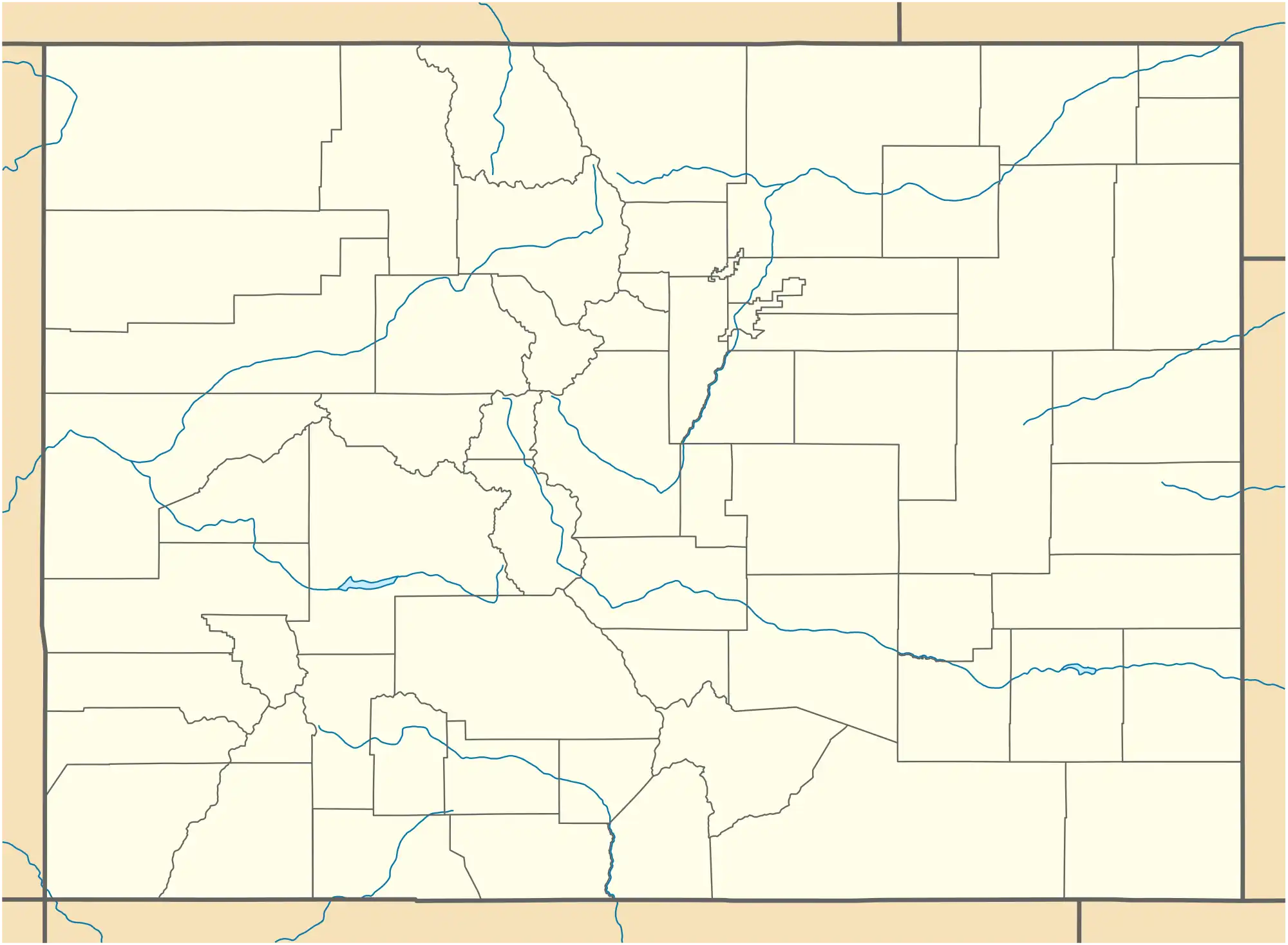Carbonate, Colorado | |
|---|---|
| Town of Carbonate[1] | |
 Carbonate Location of the Town of Carbonate in the State of Colorado. | |
| Coordinates: 39°44′40″N 107°20′21″W / 39.74444°N 107.33917°W[2] | |
| Country | |
| State | |
| County | Garfield County |
| Founded | 1879 |
| Incorporated | April 13, 1883[3] |
| Government | |
| • Type | Statutory Town |
| Area | |
| • Total | 1.006 sq mi (2.605 km2) |
| • Land | 0.992 sq mi (2.569 km2) |
| • Water | 0.014 sq mi (0.036 km2) |
| Elevation | 10,854 ft (3,308 m) |
| Population | |
| • Total | 0 |
| • Metro | 79,043 |
| • CSA | 134,774 |
| Time zone | UTC−07:00 (MST) |
| • Summer (DST) | UTC−06:00 (MDT) |
| GNIS feature | 2803717[2] |
The Town of Carbonate is a statutory town and an extinct silver mining camp located in Garfield County, Colorado, United States.[1] Founded in 1879, Carbonate was designated the original seat of Garfield County from its creation on February 10, 1883, until voters moved the county seat to Glenwood Springs later that year. The Carbonate post office operated from April 13, 1883, until November 15, 1886.[5] On November 4, 2014, the property owners of Carbonate voted to reactivate the town government despite having no year-round residents since the 1890 United States Census.[6]
History
Carbonate was founded as a silver camp in 1879.[7] On February 10, 1883, Colorado created Garfield County and designated Carbonate as the original county seat. The Town of Carbonate incorporated on April 13, 1883,[3] and the Carbonate post office opened the same day.[5] Carbonate's location high in the Flat Tops mountains made access difficult. After a few months, the Garfield County seat was moved to Glenwood Hot Springs. As the silver played out, miners departed. By 1890, no residents remained.
On November 4, 2014, Carbonate property owners voted 9 to 0 to reactivate the town's government in hopes of future development.[6] The town has summer visitors but no permanent residents, making it the only active incorporated municipality in Colorado with no permanent population.
Geography
Carbonate is in the Flat Tops mountains, 13.4 miles (21.5 km) north of Glenwood Springs.
At the 2020 United States Census, the town had a total area of 644 acres (2.605 km2) including 8.9 acres (0.036 km2) of water.[4]
Demographics
Carbonate has been continuously uninhabited since the 1890 United States Census.
| Census | Pop. | Note | %± |
|---|---|---|---|
| 1890 | 0 | — | |
| 1900 | 0 | — | |
| 1910 | 0 | — | |
| 1920 | 0 | — | |
| 1930 | 0 | — | |
| 1940 | 0 | — | |
| 1950 | 0 | — | |
| 1960 | 0 | — | |
| 1970 | 0 | — | |
| 1980 | 0 | — | |
| 1990 | 0 | — | |
| 2000 | 0 | — | |
| 2010 | 0 | — | |
| 2020 | 0 | — | |
| U.S. Decennial Census | |||
See also
References
- 1 2 3 "Active Colorado Municipalities". Colorado Department of Local Affairs. Retrieved October 15, 2021.
- 1 2 3 U.S. Geological Survey Geographic Names Information System: Carbonate, Colorado
- 1 2 3 "Local Government Filings: Carbonate". Department of Local Affairs, State of Colorado. May 10, 2021. Retrieved May 10, 2021.
- 1 2 3 "Decennial Census P.L. 94-171 Redistricting Data". United States Census Bureau, United States Department of Commerce. August 12, 2021. Retrieved September 7, 2021.
- 1 2 Bauer, William H.; Ozment, James L.; Willard, John H. (1990). Colorado Post Offices 1859–1989. Golden, Colorado: Colorado Railroad Historical Foundation. ISBN 0-918654-42-4.
- 1 2 Stroud, John (November 8, 2014). "Yes, that's a town — by 9-0 vote". Glenwood Springs Post Independent. Archived from the original on March 6, 2017. Retrieved May 10, 2021.
- ↑ Jessen, Kenneth (November 29, 2012). "Access in snow cut Carbonate's time in the sun short". Glenwood Springs Post Independent. Retrieved May 10, 2021.
